2014 Panelists
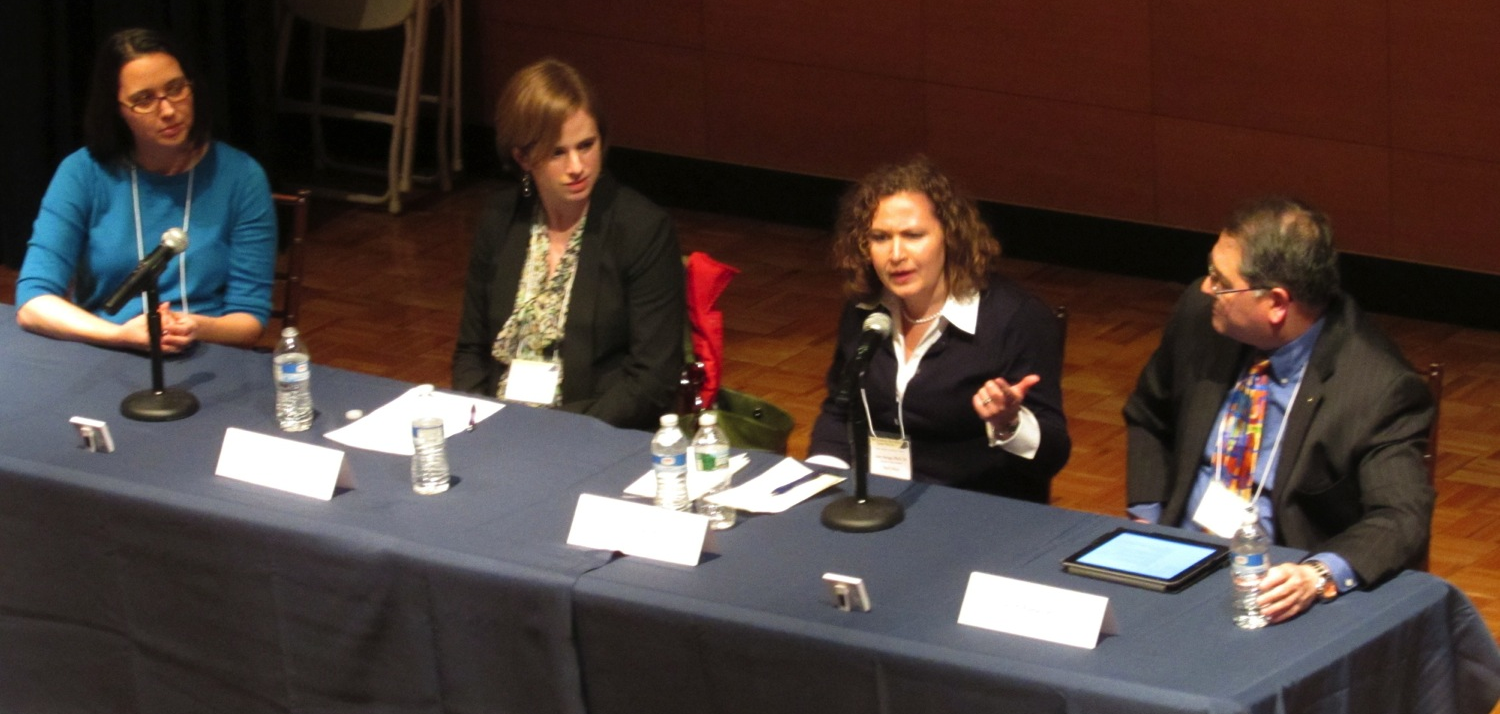
2014 Panelists
Panels offer an opportunity to hear from experienced alums and Yale associates in a variety of fields!
Biotechnology/Pharmaceutical Industry
Panelists:
Erin Matthews ’07, Protein Sciences Corporation
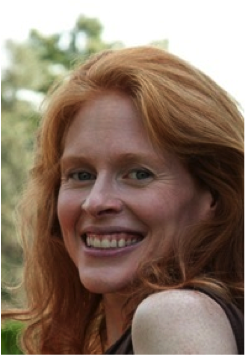 Dr. Matthews was part of the Biophysical Chemistry graduate program and did her graduate work in Don Engelman’s lab in MB&B. In her graduate work, Erin used biophysical methods to study the oligomerization of viral envelope proteins and membrane bound receptors. In her brief postdoc, which was performed in collaboration with Pfizer, she helped elucidate the mechanism of action of a small-molecule agonist of a membrane receptor, the thrombopoietin receptor. Dr. Matthews then found a job with Bristol-Myers Squibb in Wallingford, CT working on assay design for the screening small molecules against protein targets. After 4 years in small molecules at BMS, she moved back to working on membrane proteins and biologics at the small biotech, Protein Sciences, in Meriden CT. She currently leads a group of protein analytics scientists who design and perform biophysical, biochemical, and functional assays to characterize viral envelope proteins for vaccine production.
Dr. Matthews was part of the Biophysical Chemistry graduate program and did her graduate work in Don Engelman’s lab in MB&B. In her graduate work, Erin used biophysical methods to study the oligomerization of viral envelope proteins and membrane bound receptors. In her brief postdoc, which was performed in collaboration with Pfizer, she helped elucidate the mechanism of action of a small-molecule agonist of a membrane receptor, the thrombopoietin receptor. Dr. Matthews then found a job with Bristol-Myers Squibb in Wallingford, CT working on assay design for the screening small molecules against protein targets. After 4 years in small molecules at BMS, she moved back to working on membrane proteins and biologics at the small biotech, Protein Sciences, in Meriden CT. She currently leads a group of protein analytics scientists who design and perform biophysical, biochemical, and functional assays to characterize viral envelope proteins for vaccine production.
*Attending Panel 1 Lunch
Aravind Basavapathruni '06, Epizyme
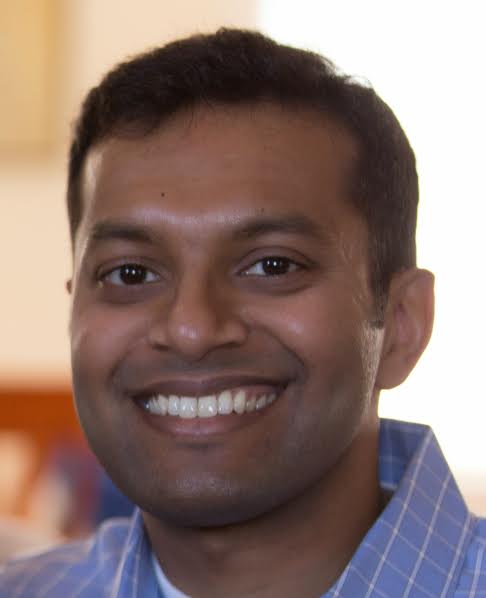 Aravind Basavapathruni completed his Ph.D. in Pharmacology at Yale in 2006, in the lab of Dr. Karen Anderson. His Ph.D. studies focused on structure-activity relationships of inhibitors targeting HIV-1 reverse transcriptase. After his graduate training, he joined the lab of Dr. Norman Letvin at Harvard Medical School/Beth Israel Deaconess Medical Center as a postdoctoral research fellow, studying immune evasion by the HIV-1 envelope protein after envelope immunization. In 2009, he began a career in biotech/pharma, and is now Senior Scientist at Epizyme in Cambridge, MA. Epizyme is a clinical stage biopharmaceutical company that discovers, develops and plans to commercialize innovative personalized therapeutics for patients with genetically defined cancers.
Aravind Basavapathruni completed his Ph.D. in Pharmacology at Yale in 2006, in the lab of Dr. Karen Anderson. His Ph.D. studies focused on structure-activity relationships of inhibitors targeting HIV-1 reverse transcriptase. After his graduate training, he joined the lab of Dr. Norman Letvin at Harvard Medical School/Beth Israel Deaconess Medical Center as a postdoctoral research fellow, studying immune evasion by the HIV-1 envelope protein after envelope immunization. In 2009, he began a career in biotech/pharma, and is now Senior Scientist at Epizyme in Cambridge, MA. Epizyme is a clinical stage biopharmaceutical company that discovers, develops and plans to commercialize innovative personalized therapeutics for patients with genetically defined cancers.
Matthew Roberts '11, GlaxoSmithKline
 Dr. Matthew Roberts joined GlaxoSmithKline's Technical Development Program (TDP) in 2011 following a brief postdoctoral position at Yale in the lab of Susumu Tomita, Department of Cellular and Molecular Physiology. His current work as a TDP graduate supports the efforts of GSK's Biopharmaceutical Analytical Sciences Department and GSK's biopharmaceutical portfolio through analytical method development and by acting as an interface between multiple biopharm-related business units. Matthew earned his PhD in Molecular Biophysics and Biochemistry at Yale in the lab of Vinzenz Unger where he used electron microscopy to study the structure-function relationship of a membrane protein that he heterologously expressed, purified and crystallized in proteolipid bilayers.
Dr. Matthew Roberts joined GlaxoSmithKline's Technical Development Program (TDP) in 2011 following a brief postdoctoral position at Yale in the lab of Susumu Tomita, Department of Cellular and Molecular Physiology. His current work as a TDP graduate supports the efforts of GSK's Biopharmaceutical Analytical Sciences Department and GSK's biopharmaceutical portfolio through analytical method development and by acting as an interface between multiple biopharm-related business units. Matthew earned his PhD in Molecular Biophysics and Biochemistry at Yale in the lab of Vinzenz Unger where he used electron microscopy to study the structure-function relationship of a membrane protein that he heterologously expressed, purified and crystallized in proteolipid bilayers.
*Attending Panel 1 Lunch
Ellen Donnelly ’04, Pfizer Neuroscience
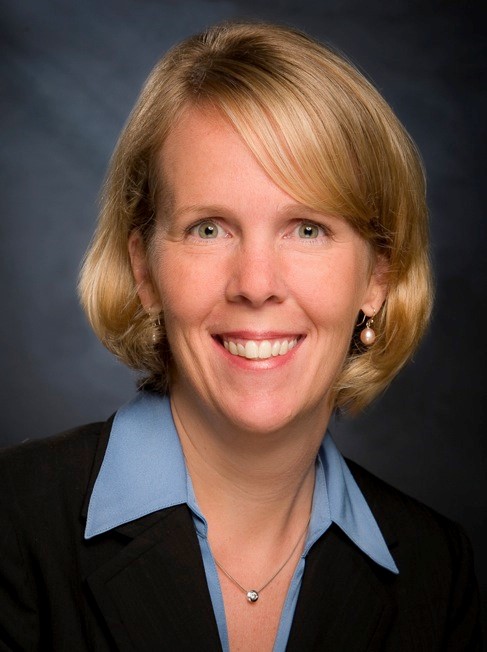 Ellen Donnelly is currently the Clinical Operations Therapeutic Area Lead for Neuroscience at Pfizer, Inc. In this role, Ellen is responsible for the operational aspects of all clinical studies (phase 1 – 4) running in Neuroscience throughout Pfizer. Previously Ellen was the Head of Portfolio, Strategy and Communications within Neuroscience Research at Pfizer. In that role she was responsible for portfolio strategy and management of a portfolio focused from early target identification through proof of concept over a wide range of Neuroscience disease areas including Alzheimer’s disease, Parkinson’s disease, Schizophrenia and others. While at Pfizer Ellen has also held roles within Portfolio and Project Management and the Strategic Management Group (an internal management consulting function). Prior to joining Pfizer, Ellen was a program manager at CombinatoRx, Inc. where she led a Phase 2 program in Rheumatoid Arthritis and was responsible for the Neuroscience research portfolio. Ellen has a PhD from Yale University where she studied the modulation of voltage-gated sodium channels in disease. After receiving her PhD, Ellen worked in management consulting with Leerink Swann Strategic Advisors, a consulting group within the healthcare investment bank Leerink Swann.
Ellen Donnelly is currently the Clinical Operations Therapeutic Area Lead for Neuroscience at Pfizer, Inc. In this role, Ellen is responsible for the operational aspects of all clinical studies (phase 1 – 4) running in Neuroscience throughout Pfizer. Previously Ellen was the Head of Portfolio, Strategy and Communications within Neuroscience Research at Pfizer. In that role she was responsible for portfolio strategy and management of a portfolio focused from early target identification through proof of concept over a wide range of Neuroscience disease areas including Alzheimer’s disease, Parkinson’s disease, Schizophrenia and others. While at Pfizer Ellen has also held roles within Portfolio and Project Management and the Strategic Management Group (an internal management consulting function). Prior to joining Pfizer, Ellen was a program manager at CombinatoRx, Inc. where she led a Phase 2 program in Rheumatoid Arthritis and was responsible for the Neuroscience research portfolio. Ellen has a PhD from Yale University where she studied the modulation of voltage-gated sodium channels in disease. After receiving her PhD, Ellen worked in management consulting with Leerink Swann Strategic Advisors, a consulting group within the healthcare investment bank Leerink Swann.
*Attending Panel 1 Lunch
Translational Research/Clinical Trial Administration
Panelists:
Erling Donnelly ’05, Pfizer
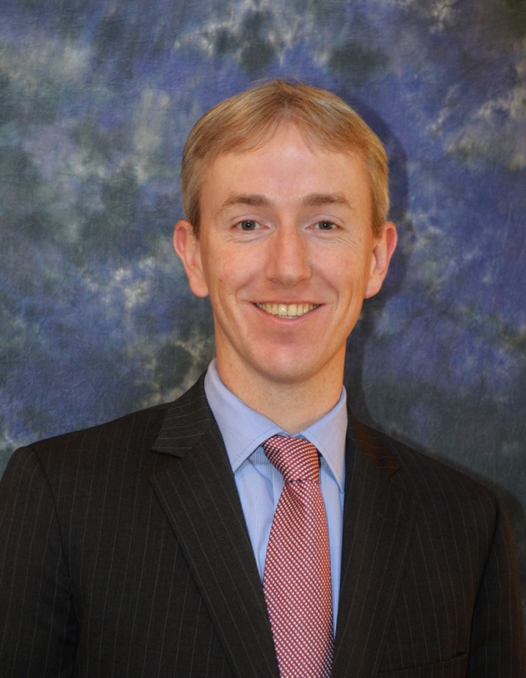 Erling Donnelly, Ph.D., is Senior Director, Team Leader for Pfizer Oncology. Erling is the Team Leader for palbociclib and dacomitinib which are in late-stage development for advanced breast cancer and NSCLC, respectively. Erling was the Global Regulatory Lead for XALKORI (crizotinib), a kinase inhibitor recently approved for the treatment of anaplastic lymphoma kinase (ALK)-positive advanced NSCLC, as it was initially filed for and received approval in over 70 countries globally. Erling has also been the Global Regulatory Lead for other molecularly-targeted therapeutics in clinical development with associated companion diagnostics, along with a number of cancer immunotherapy programs. Erling previously worked for Coley Pharmaceutical Group, which was acquired by Pfizer Inc. in 2007. Erling holds a Ph.D. in Pharmacology from Yale University.
Erling Donnelly, Ph.D., is Senior Director, Team Leader for Pfizer Oncology. Erling is the Team Leader for palbociclib and dacomitinib which are in late-stage development for advanced breast cancer and NSCLC, respectively. Erling was the Global Regulatory Lead for XALKORI (crizotinib), a kinase inhibitor recently approved for the treatment of anaplastic lymphoma kinase (ALK)-positive advanced NSCLC, as it was initially filed for and received approval in over 70 countries globally. Erling has also been the Global Regulatory Lead for other molecularly-targeted therapeutics in clinical development with associated companion diagnostics, along with a number of cancer immunotherapy programs. Erling previously worked for Coley Pharmaceutical Group, which was acquired by Pfizer Inc. in 2007. Erling holds a Ph.D. in Pharmacology from Yale University.
*Attending Panel 2 Lunch
Matthew Renda, Postdoc alum, CE3
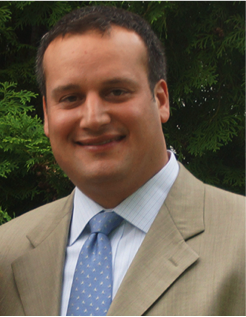 Dr. Matthew Renda, Ph.D., M.S. is Associate Director of Submissions and Medical Writing at CE3 Inc., a Contract Research Organization in Guilford CT where he directs medical and scientific writing activities supporting client projects including regulatory submissions. Before joining CE3, Matt returned to Yale as an HHMI Research Scientist in the lab of Dr. Ronald Breaker after working at Clinical Data Inc. in New Haven. At Clinical Data, Matt was a Research Scientist responsible for managing the non-clinical sections of the Viibryd New Drug Application and the Viibryd clinical pharmacogenetic biomarker program across three Phase 3 trials. Prior to this, Matt was President of the Yale Biotechnology & Pharmaceutical Society (renamed the Yale Healthcare & Life Sciences Club) while an Associate Research Scientist for Dr. Diane Krause at the Yale Stem Cell Center and Postdoctoral Associate for Dr. Frank Giordano at the Yale Department of Cardiology. Matt holds a Ph.D. in Biochemistry and M.S. in Microbiology from the University of Rochester where his research was patented and sparked his interest in the business of life sciences
Dr. Matthew Renda, Ph.D., M.S. is Associate Director of Submissions and Medical Writing at CE3 Inc., a Contract Research Organization in Guilford CT where he directs medical and scientific writing activities supporting client projects including regulatory submissions. Before joining CE3, Matt returned to Yale as an HHMI Research Scientist in the lab of Dr. Ronald Breaker after working at Clinical Data Inc. in New Haven. At Clinical Data, Matt was a Research Scientist responsible for managing the non-clinical sections of the Viibryd New Drug Application and the Viibryd clinical pharmacogenetic biomarker program across three Phase 3 trials. Prior to this, Matt was President of the Yale Biotechnology & Pharmaceutical Society (renamed the Yale Healthcare & Life Sciences Club) while an Associate Research Scientist for Dr. Diane Krause at the Yale Stem Cell Center and Postdoctoral Associate for Dr. Frank Giordano at the Yale Department of Cardiology. Matt holds a Ph.D. in Biochemistry and M.S. in Microbiology from the University of Rochester where his research was patented and sparked his interest in the business of life sciences
*Attending Panel 2 Lunch
Jasmine Escalera '10, Child Mind Institute
 Jasmine J. Escalera, PhD, brings an extensive knowledge of research design, management, and coordination to the Child Mind Institute in her role as project manager. Dr. Escalera received her bachelor's degree from Pace University and her doctorate in pharmacology from the Yale University School of Medicine. During her graduate studies at Yale, her work focused on understanding the mechanisms involved in sensory neural pain pathways and their role in skin inflammation. Following graduate school, Dr. Escalera began her clinical research career as a project manager for the Veterans Affairs (VA) Boston Health Care System. This position included planning and coordination of large, multi-site research studies in the fields of alcoholism, diabetes, and cardiology. She was also influential in the management and piloting of a program aimed at embedding clinical trials into regular medical care using the VA hospitals extensive electronic medical records system. Dr. Escalera continued her career at the Brain Trauma Foundation (BTF). While at BTF, Dr. Escalera successfully assisted in the development of the organization's quality systems and focused on standardizing all research practices. She also implemented and coordinated a large research study aimed at understanding the role of attention in mild traumatic brain injury (TBI) through the use of an eye-tracking paradigm. At the Child Mind Institute, Dr. Escalera has many duties ranging from developing project plans and setting milestones to ensuring adherence to clinical and research obligations.
Jasmine J. Escalera, PhD, brings an extensive knowledge of research design, management, and coordination to the Child Mind Institute in her role as project manager. Dr. Escalera received her bachelor's degree from Pace University and her doctorate in pharmacology from the Yale University School of Medicine. During her graduate studies at Yale, her work focused on understanding the mechanisms involved in sensory neural pain pathways and their role in skin inflammation. Following graduate school, Dr. Escalera began her clinical research career as a project manager for the Veterans Affairs (VA) Boston Health Care System. This position included planning and coordination of large, multi-site research studies in the fields of alcoholism, diabetes, and cardiology. She was also influential in the management and piloting of a program aimed at embedding clinical trials into regular medical care using the VA hospitals extensive electronic medical records system. Dr. Escalera continued her career at the Brain Trauma Foundation (BTF). While at BTF, Dr. Escalera successfully assisted in the development of the organization's quality systems and focused on standardizing all research practices. She also implemented and coordinated a large research study aimed at understanding the role of attention in mild traumatic brain injury (TBI) through the use of an eye-tracking paradigm. At the Child Mind Institute, Dr. Escalera has many duties ranging from developing project plans and setting milestones to ensuring adherence to clinical and research obligations.
Science Policy & Government
Panelists:
Ian Simon ’08, Institute for Defense Analysis
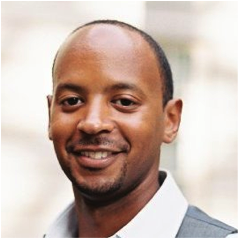 Dr. Ian Simon is currently a Science Policy Analyst at the Science and Technology Policy Institute, an external think tank to the White House Office of Science and Technology Policy. Prior to this position, he developed and implemented international science policy during his tenure as an AAAS Science & Technology Policy Fellow at the U.S. Department of State. From 2010-11, Ian was the American Society for Microbiology Congressional Science Fellow, serving as public health and science adviser to U.S. Senate Majority Leader Harry Reid. Ian began his career as a microbiologist and transitioned to science policy through, in part, the Henry Luce Scholarship. Ian earned his B.S. degree from the University of Maryland, College Park; and M.Phil. and Ph.D. degrees in microbiology from Yale University, specializing in AIDS vaccine research and development
Dr. Ian Simon is currently a Science Policy Analyst at the Science and Technology Policy Institute, an external think tank to the White House Office of Science and Technology Policy. Prior to this position, he developed and implemented international science policy during his tenure as an AAAS Science & Technology Policy Fellow at the U.S. Department of State. From 2010-11, Ian was the American Society for Microbiology Congressional Science Fellow, serving as public health and science adviser to U.S. Senate Majority Leader Harry Reid. Ian began his career as a microbiologist and transitioned to science policy through, in part, the Henry Luce Scholarship. Ian earned his B.S. degree from the University of Maryland, College Park; and M.Phil. and Ph.D. degrees in microbiology from Yale University, specializing in AIDS vaccine research and development
*Attending Panel 3 Lunch
Tom Magaldi ’12, NYAS
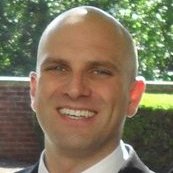 As Director of Science Alliance, the Academy’s professional development branch, Dr. Tom Magaldi develops and implements innovative workshops and courses that provide early-career scientists with a range of soft and business skills that will be essential for all careers. He works closely with career development offices and student and postdoc organizations to consolidate resources and implement new ideas for professional development programing. Dr. Magaldi also offers seminars on career development and exploration at many of the partner institutions of Science Alliance. Dr. Magaldi received his PhD in genetics from Yale University out of Daniel DiMaio’s lab and then conducted a postdoc at the National Cancer Institute. He has worked as a math and science tutor for underprivileged children in New Haven and as an Adjunct Professor of Biology at Montgomery College and the University of the District of Columbia. As a virtual intern for the U.S. Department of State, he collaborated with the U.S. Embassy in Mongolia on a research project to identify areas in Mongolian undergraduate and graduate STEM education that required improvement. Dr. Magaldi was an Executive Board Member for the Career Network for Science PhDs at Yale, an organization that provided networking and internship opportunities for young scientists at Yale.
As Director of Science Alliance, the Academy’s professional development branch, Dr. Tom Magaldi develops and implements innovative workshops and courses that provide early-career scientists with a range of soft and business skills that will be essential for all careers. He works closely with career development offices and student and postdoc organizations to consolidate resources and implement new ideas for professional development programing. Dr. Magaldi also offers seminars on career development and exploration at many of the partner institutions of Science Alliance. Dr. Magaldi received his PhD in genetics from Yale University out of Daniel DiMaio’s lab and then conducted a postdoc at the National Cancer Institute. He has worked as a math and science tutor for underprivileged children in New Haven and as an Adjunct Professor of Biology at Montgomery College and the University of the District of Columbia. As a virtual intern for the U.S. Department of State, he collaborated with the U.S. Embassy in Mongolia on a research project to identify areas in Mongolian undergraduate and graduate STEM education that required improvement. Dr. Magaldi was an Executive Board Member for the Career Network for Science PhDs at Yale, an organization that provided networking and internship opportunities for young scientists at Yale.
Kristin Van Goor ’08, PhRMA
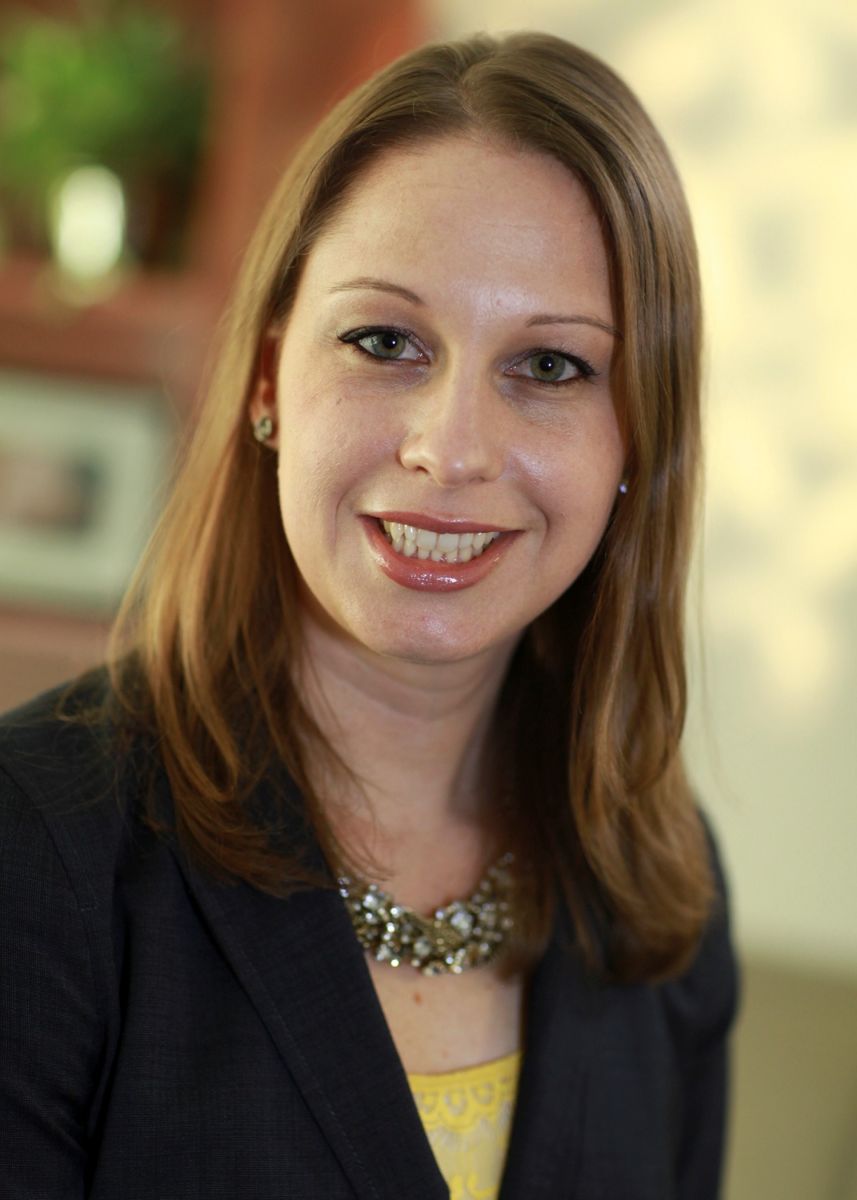 Before coming to PhRMA, Kristin was a Senior Developer and Manager of next-generation sequencing-based genetic tests at GeneDx, a genetic testing and diagnostics company in Gaithersburg, Maryland. In conjunction with her undergraduate work at Claremont McKenna College, she completed an internship at the University of Texas Health Sciences Center at Houston in the Department of Integrative Biology and Pharmacology. She received her Ph.D. in Genetics from Yale University, and during this time she also completed an internship at Bristol-Myers Squibb in the Department of New Leads Discovery. She continued her research as a post-doctoral fellow in the Cancer Genetics Branch of the National Human Genome Research Institute at the National Institutes of Health in Bethesda, Maryland. After leaving academia, Kristin received her Regulatory Affairs Certification in U.S. Regulatory Affairs. At PhRMA, Kristin leads a broad range of scientific and regulatory advocacy initiatives related to implementation and reauthorization of the Prescription Drug User Fee Act and the Food and Drug Administration Safety and Innovation Act. Beyond these domestic priorities, she has global responsibility for implementation of regulation and policies for innovative biologics and biosimilars.
Before coming to PhRMA, Kristin was a Senior Developer and Manager of next-generation sequencing-based genetic tests at GeneDx, a genetic testing and diagnostics company in Gaithersburg, Maryland. In conjunction with her undergraduate work at Claremont McKenna College, she completed an internship at the University of Texas Health Sciences Center at Houston in the Department of Integrative Biology and Pharmacology. She received her Ph.D. in Genetics from Yale University, and during this time she also completed an internship at Bristol-Myers Squibb in the Department of New Leads Discovery. She continued her research as a post-doctoral fellow in the Cancer Genetics Branch of the National Human Genome Research Institute at the National Institutes of Health in Bethesda, Maryland. After leaving academia, Kristin received her Regulatory Affairs Certification in U.S. Regulatory Affairs. At PhRMA, Kristin leads a broad range of scientific and regulatory advocacy initiatives related to implementation and reauthorization of the Prescription Drug User Fee Act and the Food and Drug Administration Safety and Innovation Act. Beyond these domestic priorities, she has global responsibility for implementation of regulation and policies for innovative biologics and biosimilars.
*Attending Panel 3 Lunch
Kristina Talbert-Slagle ’10, Yale Global Health Initiative
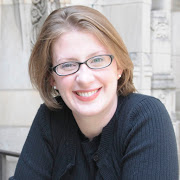 Dr. Talbert-Slagle is the Senior Scientific Officer at the Yale University Global Health Leadership Institute (GHLI) and a lecturer at the Yale School of Public Health. She is responsible for catalyzing interdisciplinary research in global health across the university and also for conducting and supporting global health research at GHLI. Her current research interests include implementation and spread of global health innovations, complex systems science, and the social dimensions of HIV infection. Her recent work has included developing a model to inform the spread of innovation among complex human systems based on the way that a virus spreads among human cells, as well as looking at the dynamics of disease spread in a social network to understand how HIV first establishes infection within the body. Dr. Talbert-Slagle completed doctoral training in virology and molecular biology and postdoctoral training in global health and mathematical modeling. She received B.S. and B.A. degrees from the University of Kentucky and a Ph.D. from Yale University.
Dr. Talbert-Slagle is the Senior Scientific Officer at the Yale University Global Health Leadership Institute (GHLI) and a lecturer at the Yale School of Public Health. She is responsible for catalyzing interdisciplinary research in global health across the university and also for conducting and supporting global health research at GHLI. Her current research interests include implementation and spread of global health innovations, complex systems science, and the social dimensions of HIV infection. Her recent work has included developing a model to inform the spread of innovation among complex human systems based on the way that a virus spreads among human cells, as well as looking at the dynamics of disease spread in a social network to understand how HIV first establishes infection within the body. Dr. Talbert-Slagle completed doctoral training in virology and molecular biology and postdoctoral training in global health and mathematical modeling. She received B.S. and B.A. degrees from the University of Kentucky and a Ph.D. from Yale University.
Science Communication, Editing, & Publishing
Panelists:
Florian Maderspacher, Current Biology Cell Press/Elsevier
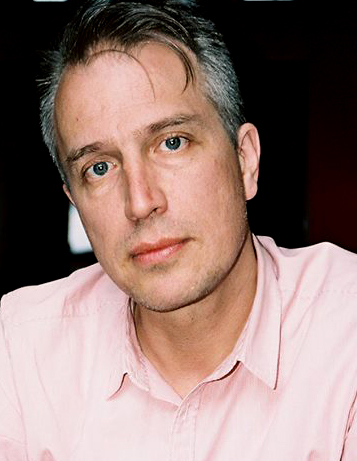 Florian Maderspacher studied biology at the University of Munich and did his Ph.D. studying zebrafish developmental genetics at the Max-Planck Institute for Developmental Biology in Tübingen. He has worked as a scientific editor for Current Biology/Cell Press since 2003, first in London, then in New York.
Florian Maderspacher studied biology at the University of Munich and did his Ph.D. studying zebrafish developmental genetics at the Max-Planck Institute for Developmental Biology in Tübingen. He has worked as a scientific editor for Current Biology/Cell Press since 2003, first in London, then in New York.
*Attending Panel 4b Lunch
Jessica Goodman '09, Prize4Life
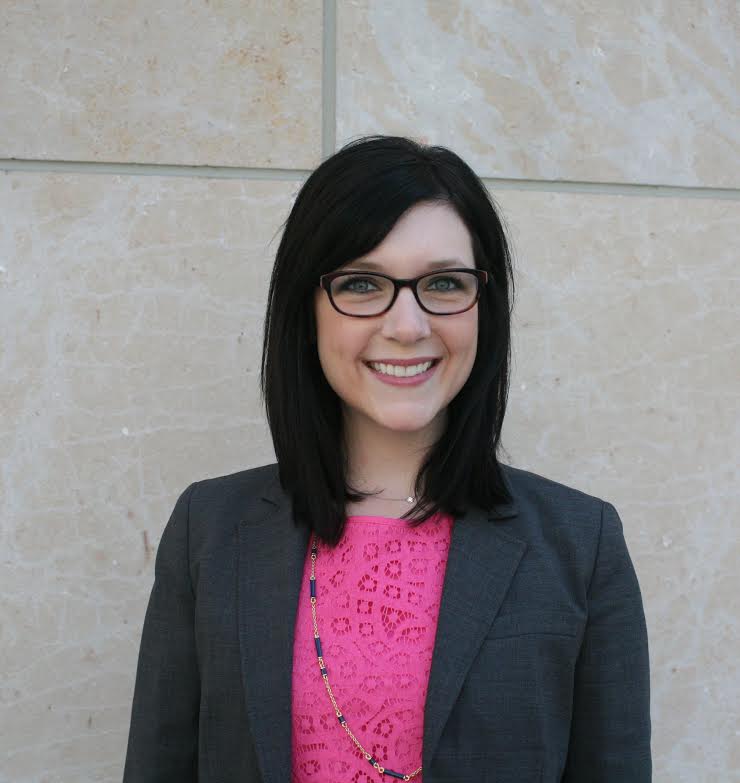 Jessica graduated summa cum laude from Nazareth College of Rochester in 2004 with a B.S. in Biochemistry. After graduation, she attended Yale University for graduate school, where she received her Ph.D. in Molecular Biophysics and Biochemistry in 2009. After graduate school, Jessica joined Dr. Susan Lindquist’s laboratory at the Whitehead Institute as an NIH NRSA postdoctoral fellow. In the Lindquist laboratory she used yeast to understand disease mechanisms underlying Alzheimer’s disease. Following her postdoctoral position she joined Prize4Life, a non-profit organization dedicated to accelerating the discovery of a cure for Amyotrophic Lateral Sclerosis (ALS or Lou Gehrig’s Disease). As the Senior Program Officer at Prize4Life, Jessica managed several programmatic initiatives, including the $1M ALS Treatment Prize, the Prize4Life SOD1 G93A Mouse Colony at The Jackson Laboratory, and the ALS Forum research website. Jessica's job roles and responsibilities were diverse and included aspects of alliance management, grant review, project management, and science writing. Jessica recently joined Biogen Idec as a scientist in the Neurology Department, where she is working to identify relevant drug targets in ALS.
Jessica graduated summa cum laude from Nazareth College of Rochester in 2004 with a B.S. in Biochemistry. After graduation, she attended Yale University for graduate school, where she received her Ph.D. in Molecular Biophysics and Biochemistry in 2009. After graduate school, Jessica joined Dr. Susan Lindquist’s laboratory at the Whitehead Institute as an NIH NRSA postdoctoral fellow. In the Lindquist laboratory she used yeast to understand disease mechanisms underlying Alzheimer’s disease. Following her postdoctoral position she joined Prize4Life, a non-profit organization dedicated to accelerating the discovery of a cure for Amyotrophic Lateral Sclerosis (ALS or Lou Gehrig’s Disease). As the Senior Program Officer at Prize4Life, Jessica managed several programmatic initiatives, including the $1M ALS Treatment Prize, the Prize4Life SOD1 G93A Mouse Colony at The Jackson Laboratory, and the ALS Forum research website. Jessica's job roles and responsibilities were diverse and included aspects of alliance management, grant review, project management, and science writing. Jessica recently joined Biogen Idec as a scientist in the Neurology Department, where she is working to identify relevant drug targets in ALS.
*Attending Panel 4a Lunch
Laura DeMare ’13, Cold Spring Harbor Lab Press
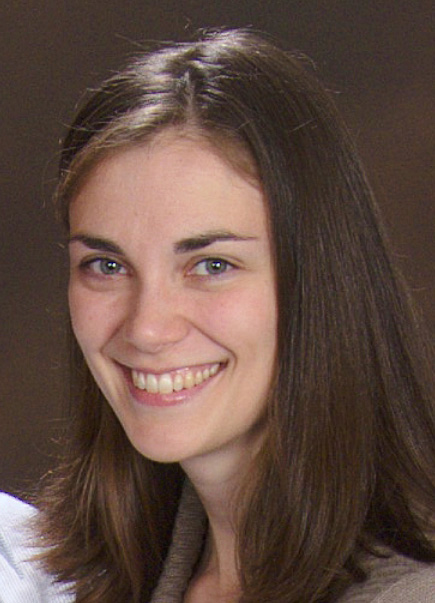 Laura DeMare completed her Ph.D. in Genetics at Yale in 2013. Subsequently, she joined the journal Genome Research as an Assistant Editor, where she is responsible for manuscript selection, liaising between authors and peer-reviewers, coordinating social media, writing press releases, and representing the Journal at scientific conferences. Genome Research is published by Cold Spring Harbor Laboratory Press, which also publishes scientific books, manuals (including Molecular Cloning), and other journals (Genes and Development, RNA, Cold Spring Harbor Protocols), and is located on Long Island, NY. While at Yale, Laura studied in the laboratory of James Noonan and developed a high-throughput DNA sequencing method to study how the three dimensional structure of the genome shapes gene expression in early mouse embryos. She also participated in the Yale Journal of Biology and Medicine as a Special Issue Editor, and served as a Science Fair Mentor in the New Haven Public Schools.
Laura DeMare completed her Ph.D. in Genetics at Yale in 2013. Subsequently, she joined the journal Genome Research as an Assistant Editor, where she is responsible for manuscript selection, liaising between authors and peer-reviewers, coordinating social media, writing press releases, and representing the Journal at scientific conferences. Genome Research is published by Cold Spring Harbor Laboratory Press, which also publishes scientific books, manuals (including Molecular Cloning), and other journals (Genes and Development, RNA, Cold Spring Harbor Protocols), and is located on Long Island, NY. While at Yale, Laura studied in the laboratory of James Noonan and developed a high-throughput DNA sequencing method to study how the three dimensional structure of the genome shapes gene expression in early mouse embryos. She also participated in the Yale Journal of Biology and Medicine as a Special Issue Editor, and served as a Science Fair Mentor in the New Haven Public Schools.
*Attending Panel 4a Lunch
Rachael Felberbaum ’11, Protein Sciences
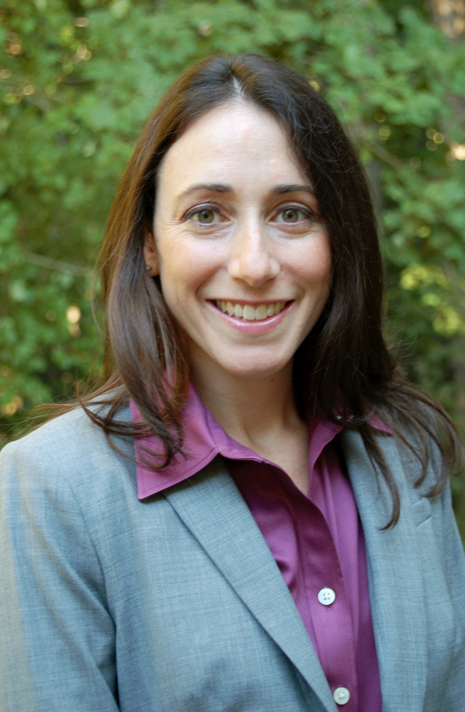 Rachael Felberbaum is Director, Corporate Communications and Shareholder Relations of Protein Sciences Corporation, a leading biotechnology company and maker of the newly FDA-approved Flublok® Influenza Vaccine (www.flublok.com). The company is headquartered in Meriden, CT and recently expanded its manufacturing operations to Pearl River, NY. Rachael has been with Protein Sciences for almost three years. During her time with the company, she has played roles in business development, scientific writing, marketing and public relations.
Rachael Felberbaum is Director, Corporate Communications and Shareholder Relations of Protein Sciences Corporation, a leading biotechnology company and maker of the newly FDA-approved Flublok® Influenza Vaccine (www.flublok.com). The company is headquartered in Meriden, CT and recently expanded its manufacturing operations to Pearl River, NY. Rachael has been with Protein Sciences for almost three years. During her time with the company, she has played roles in business development, scientific writing, marketing and public relations.
Rachael is a trained Molecular Biologist and earned her Ph.D. in Molecular, Cell and Developmental Biology from Yale University in 2011. She has a B.A. in Psychology from the University of Pennsylvania. Previously, Rachael was Manager, Corporate Communications of Protarga, Inc. (King of Prussia, PA), a clinical-stage pharmaceutical company developing novel targeted therapeutics for cancer and other diseases. She lives in CT with her husband and two sons.
*Attending Panel 4b Lunch
Academic & Research Administration
Panelists:
Amy Savage ’10, Bard College
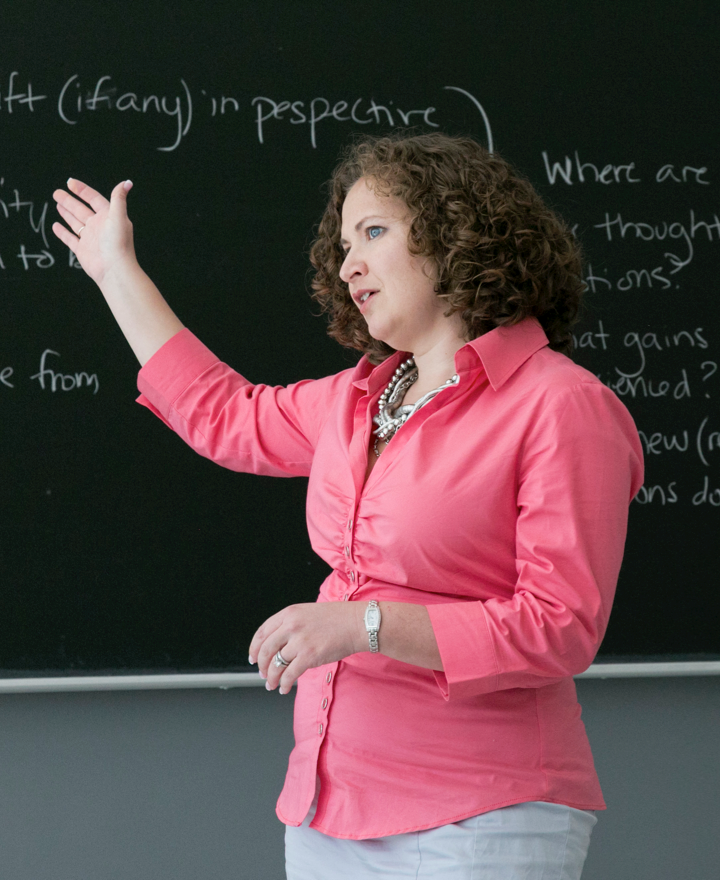 Dr. Amy Savage earned her PhD in Molecular Parasitology at Yale University (EPH-EMD), where she subsequently continued her postdoctoral training. Her researched emphasized differential gene expression of Trypanosoma brucei during development in the tsetse fly vector, and the characterization of a novel vaccine target identified by that work. Outside of the lab, she was involved with Yale's McDougal Graduate Student Life program, developing skills in event planning and promotion, budget management, recruitment of community partners, and team leadership. In 2012, Dr. Savage joined the faculty of the Citizen Science program, a science literacy program for all first year students at Bard College. She was hired to direct the program later that same year. Her responsibilities include curriculum development, faculty recruitment and training, and the management of full-time staff members and undergraduate Teaching Fellows. She teaches courses for non-majors as well as advanced Biology students, engages in scientific and educational research, and serves on a number of committees at the College associated with curricular innovation or reform.
Dr. Amy Savage earned her PhD in Molecular Parasitology at Yale University (EPH-EMD), where she subsequently continued her postdoctoral training. Her researched emphasized differential gene expression of Trypanosoma brucei during development in the tsetse fly vector, and the characterization of a novel vaccine target identified by that work. Outside of the lab, she was involved with Yale's McDougal Graduate Student Life program, developing skills in event planning and promotion, budget management, recruitment of community partners, and team leadership. In 2012, Dr. Savage joined the faculty of the Citizen Science program, a science literacy program for all first year students at Bard College. She was hired to direct the program later that same year. Her responsibilities include curriculum development, faculty recruitment and training, and the management of full-time staff members and undergraduate Teaching Fellows. She teaches courses for non-majors as well as advanced Biology students, engages in scientific and educational research, and serves on a number of committees at the College associated with curricular innovation or reform.
*Attending Panel 5a Lunch
Nina Gray, NYU Neuroscience Institute
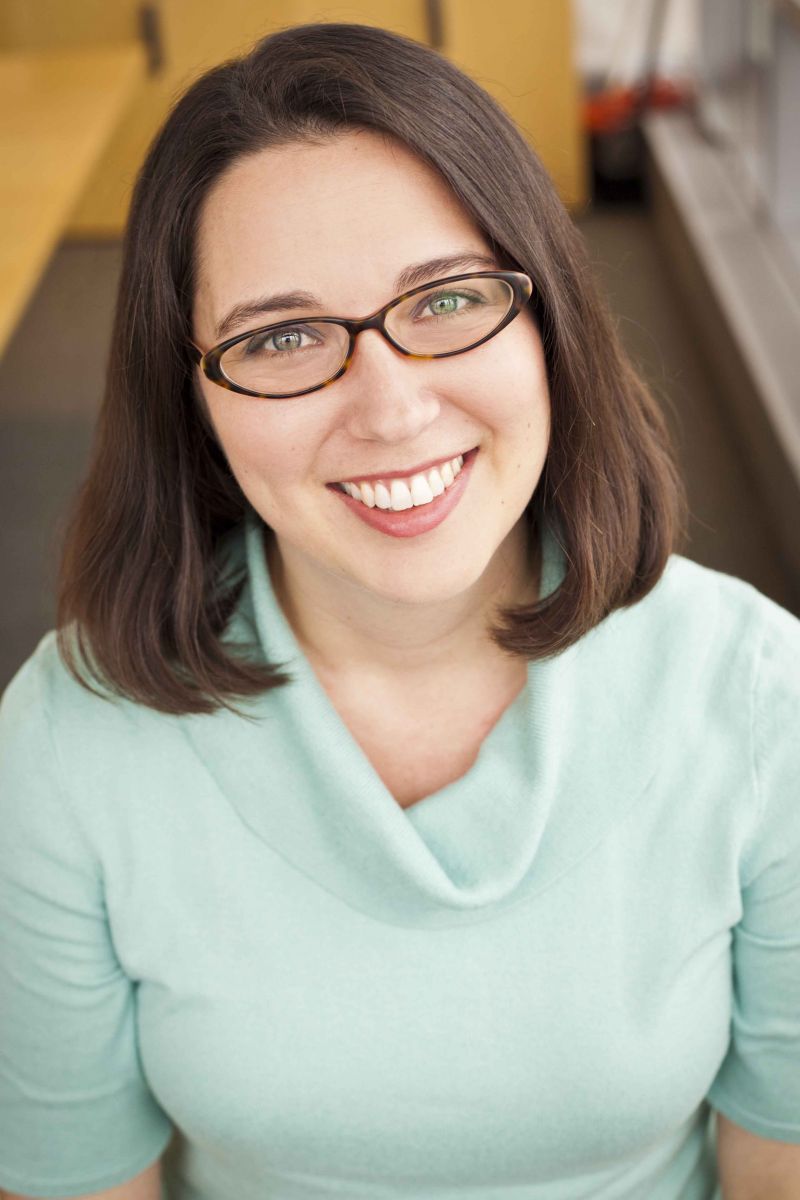
*Attending Panel 5a Lunch
David Riese '93, Auburn
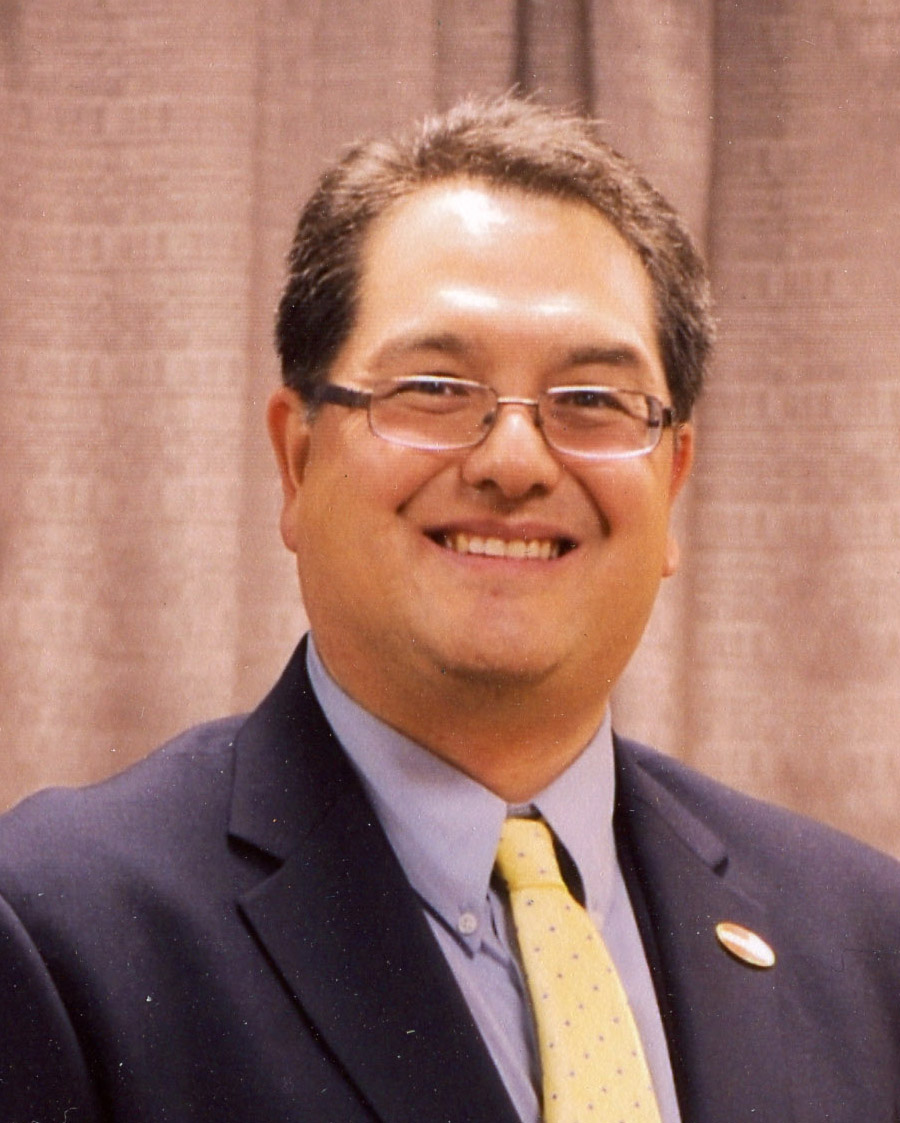 David J. Riese earned an AB in Biology from Wabash College, followed by a PhD in Genetics at Yale University under the tutelage of Daniel DiMaio. After postdoctoral training in Pathology at Yale University under the mentorship of David Stern, Riese joined the faculty of the Purdue University College of Pharmacy. At Purdue, Riese founded and directed the interdisciplinary Breast Cancer Research Program, directed the interdepartmental Molecular Signaling and Cancer Biology graduate program, and served on the executive committee for the NCI-designated Purdue Center for Cancer Research. In 2010, Riese was named Associate Dean for Research and Graduate Programs at the Auburn University Harrison School of Pharmacy (HSOP). Riese fosters and manages HSOP research and graduate education and coordinates the roles that HSOP plays in interdisciplinary research and graduate initiatives at Auburn. Riese is the recipient of several grants from NIH and DoD, has earned numerous awards for teaching and cancer research excellence, and holds the Gilliland and Franklin Professorship at Auburn.
David J. Riese earned an AB in Biology from Wabash College, followed by a PhD in Genetics at Yale University under the tutelage of Daniel DiMaio. After postdoctoral training in Pathology at Yale University under the mentorship of David Stern, Riese joined the faculty of the Purdue University College of Pharmacy. At Purdue, Riese founded and directed the interdisciplinary Breast Cancer Research Program, directed the interdepartmental Molecular Signaling and Cancer Biology graduate program, and served on the executive committee for the NCI-designated Purdue Center for Cancer Research. In 2010, Riese was named Associate Dean for Research and Graduate Programs at the Auburn University Harrison School of Pharmacy (HSOP). Riese fosters and manages HSOP research and graduate education and coordinates the roles that HSOP plays in interdisciplinary research and graduate initiatives at Auburn. Riese is the recipient of several grants from NIH and DoD, has earned numerous awards for teaching and cancer research excellence, and holds the Gilliland and Franklin Professorship at Auburn.
*Attending Panel 5b Lunch
Kristi Rudenga '11, Yale
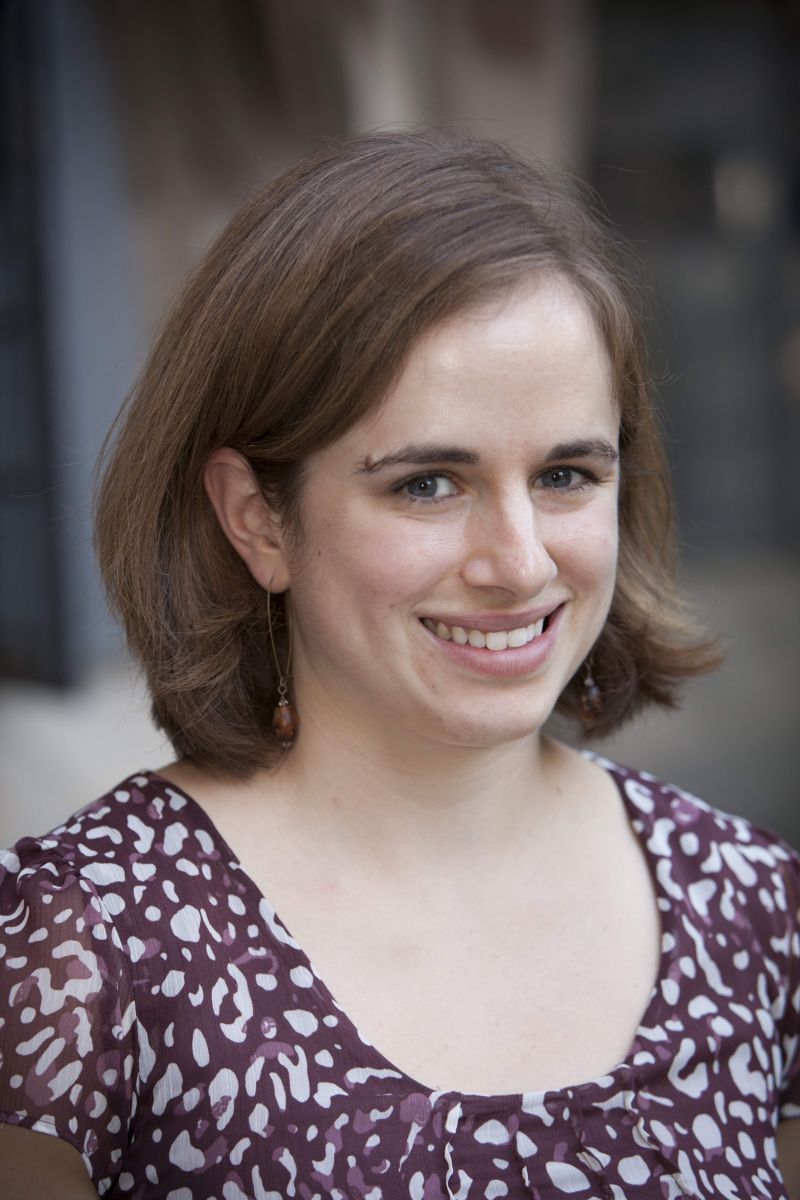 Dr. Kristi Rudenga is currently the Associate Director of the Yale Teaching Center, and in May 2014 will become Assistant Director and Professor of the Practice at the University of Notre Dame's Kaneb Center for Teaching & Learning. She leads workshops on teaching-related topics, mentors graduate fellows, and manages programming such as the Certificate of College Teaching Preparation. At Notre Dame, she will also teach and lead a small research program in teaching and learning. Dr. Rudenga earned her BS and BA from Purdue University and her PhD from Yale's Interdepartmental Neuroscience Program, where she used fMRI to study brain response to taste and food reward.
Dr. Kristi Rudenga is currently the Associate Director of the Yale Teaching Center, and in May 2014 will become Assistant Director and Professor of the Practice at the University of Notre Dame's Kaneb Center for Teaching & Learning. She leads workshops on teaching-related topics, mentors graduate fellows, and manages programming such as the Certificate of College Teaching Preparation. At Notre Dame, she will also teach and lead a small research program in teaching and learning. Dr. Rudenga earned her BS and BA from Purdue University and her PhD from Yale's Interdepartmental Neuroscience Program, where she used fMRI to study brain response to taste and food reward.
*Attending Panel 5b Lunch
Teaching & Education
Panelists:
Lynn Hannum '99, Colby College
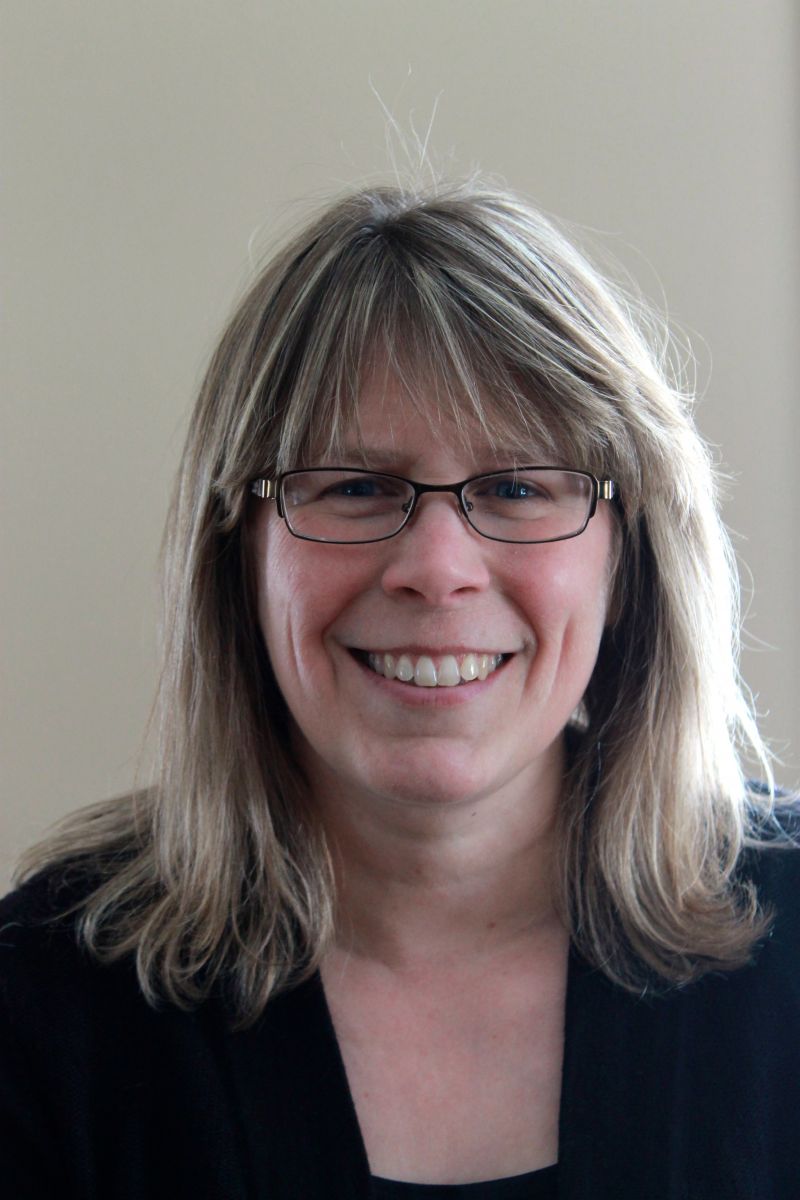 Lynn Hannum is an Associate Professor of Biology at Colby College in Waterville, Maine. She graduated from Bates College in 1987 and earned her Ph.D. in Immunobiology from Yale in 1999, working in the lab of Mark Shlomchik. Following graduate school, she was an NSF Postdoctoral Fellow in Science, Mathematics, Engineering and Technology Education at the Lewiston-Auburn College branch of the University of Southern Maine. Lynn has taught at Colby since 2001. Her regular course offerings include immunology, advanced immunology, and introductory cell and molecular biology. She also mentors students working on independent projects in her research laboratory during the academic year and summers. She currently serves on the education committee of the American Association of Immunologists.
Lynn Hannum is an Associate Professor of Biology at Colby College in Waterville, Maine. She graduated from Bates College in 1987 and earned her Ph.D. in Immunobiology from Yale in 1999, working in the lab of Mark Shlomchik. Following graduate school, she was an NSF Postdoctoral Fellow in Science, Mathematics, Engineering and Technology Education at the Lewiston-Auburn College branch of the University of Southern Maine. Lynn has taught at Colby since 2001. Her regular course offerings include immunology, advanced immunology, and introductory cell and molecular biology. She also mentors students working on independent projects in her research laboratory during the academic year and summers. She currently serves on the education committee of the American Association of Immunologists.
*Attending Panel 6 Lunch
Kat Bower-Phipps '12, Hamden HS
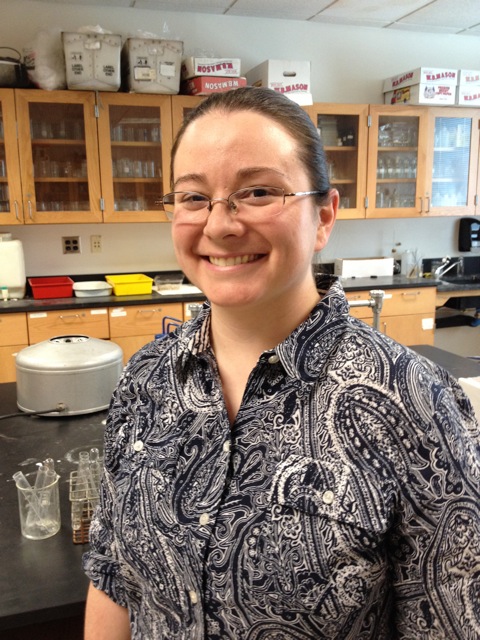
Lauren Martini '13, Choate
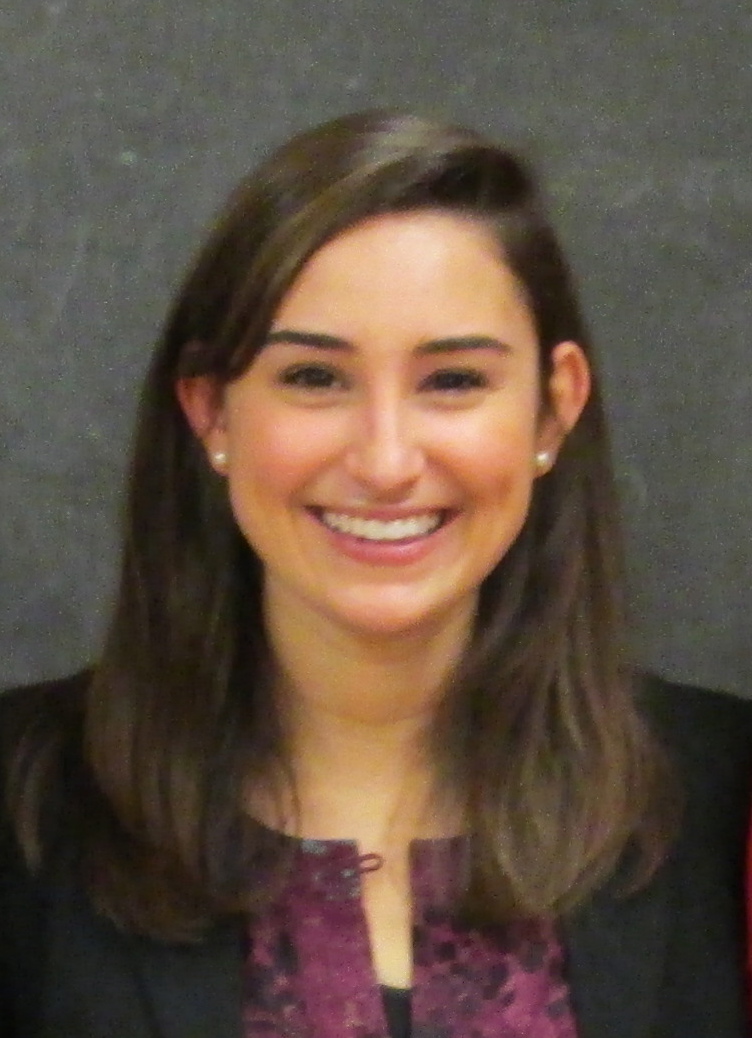
Kara Bernstein '06, University of Pittsburgh Medical School
.jpg) Dr. Bernstein received her Ph.D. in 2006 from Yale University in the Department of Genetics and Development with Dr. Susan Baserga. She subsequently conducted post-doctorate research at Columbia University with Dr. Rodney Rothstein before joining the University of Pittsburgh School of Medicine as an assistant professor in Microbiology and Molecular Genetics in 2011. Dr. Bernstein's laboratory studies how double-strand breaks in the DNA- one of the most lethal types of DNA lesions- are repaired. Her work primarily uses the model organism S. cerevisiae to understand how misregulation of double-strand break repair contributes with genetic instability and cancer. Her work has been published in Nature, Cell, EMBO Journal, Cancer Research, Molecular Biology of the Cell, etc and has been cited over 700 times. Dr. Bernstein has received several awards including the NIH K99/R00 Pathway in Independence Award in 2009, the PNC-UPCI Directors Distinguished Scholar Award in 2011, and the Ellison Medical Foundation New Scholar in Aging Award in 2012.
Dr. Bernstein received her Ph.D. in 2006 from Yale University in the Department of Genetics and Development with Dr. Susan Baserga. She subsequently conducted post-doctorate research at Columbia University with Dr. Rodney Rothstein before joining the University of Pittsburgh School of Medicine as an assistant professor in Microbiology and Molecular Genetics in 2011. Dr. Bernstein's laboratory studies how double-strand breaks in the DNA- one of the most lethal types of DNA lesions- are repaired. Her work primarily uses the model organism S. cerevisiae to understand how misregulation of double-strand break repair contributes with genetic instability and cancer. Her work has been published in Nature, Cell, EMBO Journal, Cancer Research, Molecular Biology of the Cell, etc and has been cited over 700 times. Dr. Bernstein has received several awards including the NIH K99/R00 Pathway in Independence Award in 2009, the PNC-UPCI Directors Distinguished Scholar Award in 2011, and the Ellison Medical Foundation New Scholar in Aging Award in 2012.
Robin Cresiski '07, Nevada State College
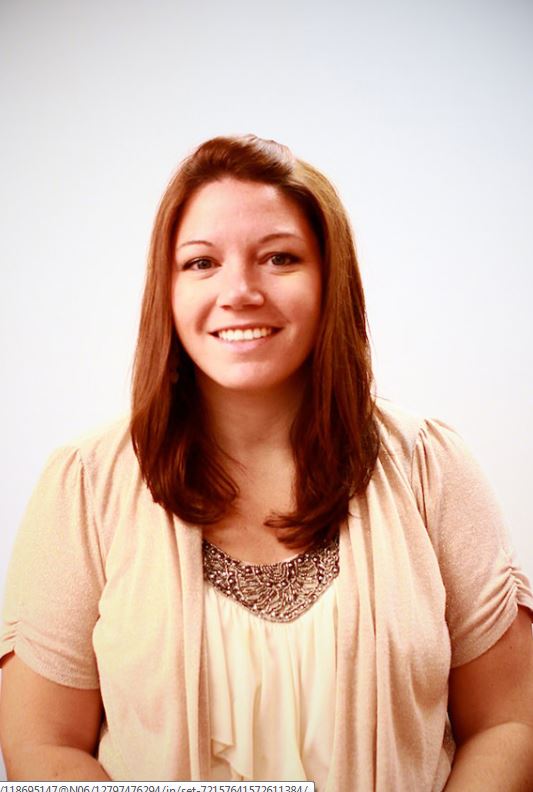 After growing up in the Washington, D.C. area, Robin Herlands Cresiski earned a B.S. in Biology from Haverford College, a small liberal arts college in Pennsylvania. There she learned the impact that small classrooms, dedicated faculty, and undergraduate research can have on students. She went on to earn a Ph.D. in 2007 in Immunobiology at Yale University where she studied cells that drive lupus, an autoimmune disease that particularly affects women. Afterwards, Dr. Cresiski spent a year as a Visiting Professor at Mount Holyoke College in Massachusetts teaching Microbiology and Immunology and guiding senior research students. In 2008 Dr. Cresiski took a tenure-track position at Nevada State College, a public baccalaureate institution that opened in 2002 with a mission to serve first generation and historically underrepresented students. She is now an Associate Professor of Biology and Department Chair of the Physical and Life Sciences. She enjoys the teaching mission of the college and the ability to give her students the opportunities she found so transformative in her own college experience. She also relishes the opportunity to be a part of a new and growing institution where faculty shape the future of the college. She teaches a variety of upper and lower division courses and guides undergraduate research in microbiology and immunology during her summers.
After growing up in the Washington, D.C. area, Robin Herlands Cresiski earned a B.S. in Biology from Haverford College, a small liberal arts college in Pennsylvania. There she learned the impact that small classrooms, dedicated faculty, and undergraduate research can have on students. She went on to earn a Ph.D. in 2007 in Immunobiology at Yale University where she studied cells that drive lupus, an autoimmune disease that particularly affects women. Afterwards, Dr. Cresiski spent a year as a Visiting Professor at Mount Holyoke College in Massachusetts teaching Microbiology and Immunology and guiding senior research students. In 2008 Dr. Cresiski took a tenure-track position at Nevada State College, a public baccalaureate institution that opened in 2002 with a mission to serve first generation and historically underrepresented students. She is now an Associate Professor of Biology and Department Chair of the Physical and Life Sciences. She enjoys the teaching mission of the college and the ability to give her students the opportunities she found so transformative in her own college experience. She also relishes the opportunity to be a part of a new and growing institution where faculty shape the future of the college. She teaches a variety of upper and lower division courses and guides undergraduate research in microbiology and immunology during her summers.
*Attending Panel 6 Lunch